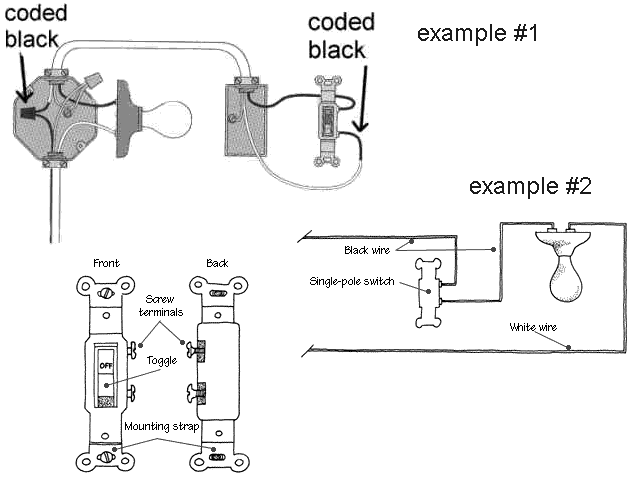Difference between revisions of "Wiring an Electrical Light Switch"
From Free Knowledge Base- The DUCK Project: information for everyone
(New page: == Standard 2-Way Switch == == 3-Way Switch == Category:Electrical Category:Construction) |
m |
||
| Line 1: | Line 1: | ||
== Standard 2-Way Switch == | == Standard 2-Way Switch == | ||
| + | The most familiar light switch, the common "light switch" is actually referred to by hardware dealers and electricians as a "single pole switch." A single pole switch has two brass terminal screws on the side. | ||
| + | |||
| + | [[Image:standardsinglepoletwoway.gif]] | ||
== 3-Way Switch == | == 3-Way Switch == | ||
| + | A three way circuit allows a person to control a light from two locations. This means that you have the ability to turn the light on or off from either of switch locations, regardless of the position of the other switch. However, unlike the standard 2-way switch where up is on and down is off, the positions of the switches on a 3-way switch is not always indicative of the of the light being on or off. | ||
| | ||
Revision as of 19:29, 10 July 2008
Standard 2-Way Switch
The most familiar light switch, the common "light switch" is actually referred to by hardware dealers and electricians as a "single pole switch." A single pole switch has two brass terminal screws on the side.
3-Way Switch
A three way circuit allows a person to control a light from two locations. This means that you have the ability to turn the light on or off from either of switch locations, regardless of the position of the other switch. However, unlike the standard 2-way switch where up is on and down is off, the positions of the switches on a 3-way switch is not always indicative of the of the light being on or off.
